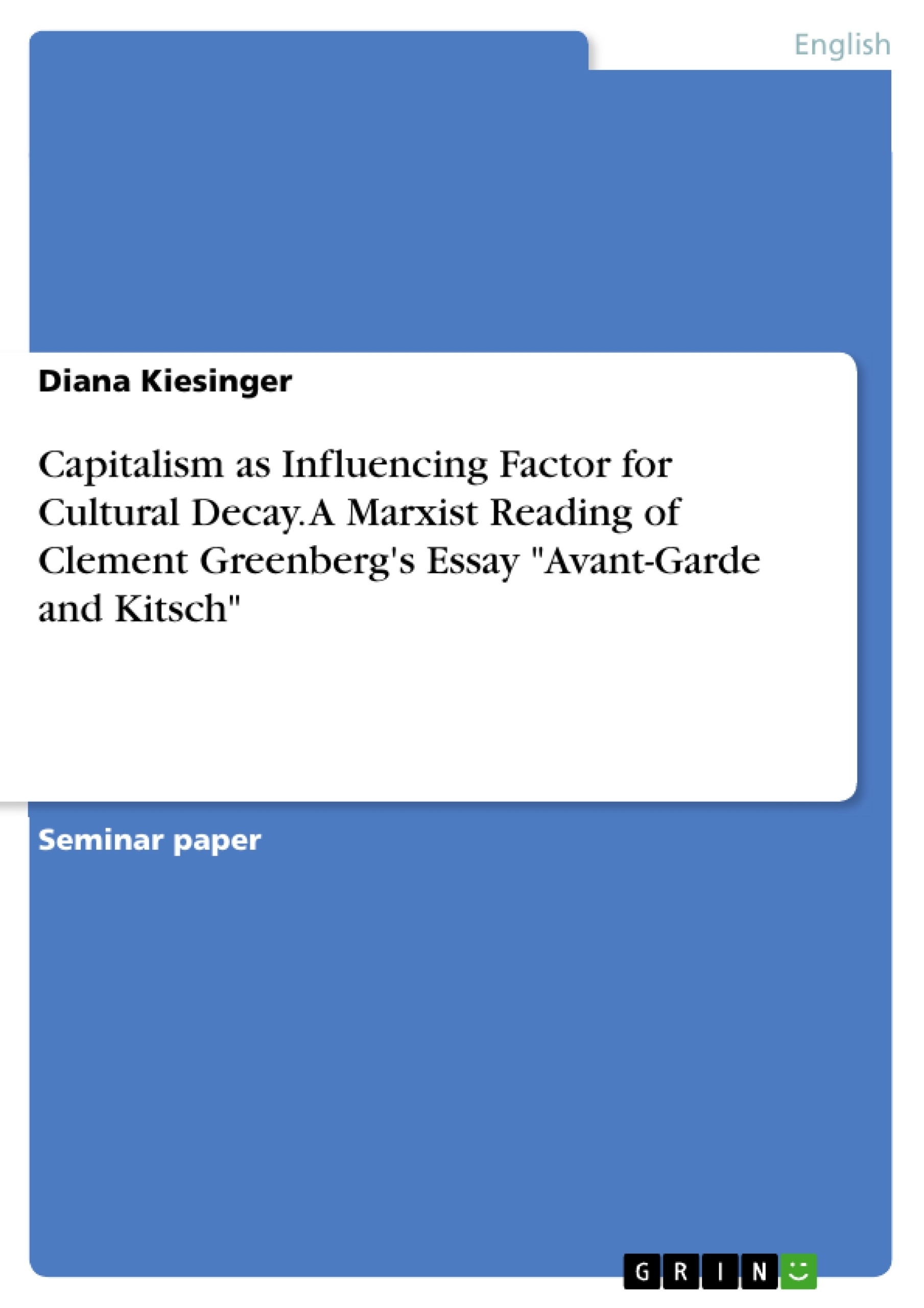This paper's objective is to combine the interpretation of Greenberg's art critique with respect to social and economic developments in combination with a Marxist analysis under
the superordinated thesis statement whether the modern capitalism can be held responsible for the decay of the avant-garde culture. For the purpose of providing a basis to proceed from, the following chapter is going to deal with contextual aspects such as the essay's temporal, historical and the philosophical classification. Chapter 3 is going to deal with the two confronted concepts of art: the avant-garde and kitsch. Here, the focus is laid on evaluating the distinctiveness of each particular concept and, moreover, supporting this with Greenberg's statements from the essay. In chapter 4 the paper is going to approach the outcomes of proofreading Greenberg's essay towards his Marxist standpoint and his attitude in terms of both dichotomic forms of art. Furthermore it is going to look at key thinkers of the Frankfurt school and make an attempt to support Greenberg's assertion with theoretical foundation with the aim of very- or falsifying this paper's thesis statement.
Table of Contents
- Introduction
- Social and Theoretical Context
- Social and Economic Background
- Cultural Disparity
- Marxism
- The Avant-Garde and Kitsch
- The Exclusiveness of the Avant-Garde
- The Problem with Kitsch
- Analysing the Essay "Avant-Garde and Kitsch"
- Conclusion
Objectives and Key Themes
The paper aims to interpret Clement Greenberg's essay "Avant-Garde and Kitsch" through the lens of Marxist literary criticism, specifically examining whether modern capitalism can be held accountable for the decline of avant-garde culture.
- The social and economic context of Greenberg's essay, including the influence of the Great Depression and the rise of mass culture.
- The distinction between avant-garde art and kitsch, as defined by Greenberg.
- The role of economic forces in shaping cultural production and consumption.
- The impact of capitalism on the evolution of art and culture.
- The relationship between artistic expression and social class.
Chapter Summaries
The introduction provides an overview of Greenberg's essay and its significance, along with the paper's objectives. Chapter 2 explores the social and theoretical context of Greenberg's work, including the economic and political climate of the 1930s, the concept of cultural disparity, and the influence of Marxist theory.
Chapter 3 delves into the two contrasting concepts of avant-garde and kitsch, analyzing their defining characteristics and supporting the analysis with Greenberg's statements. Chapter 4 examines Greenberg's essay from a Marxist perspective and explores the relationship between his art critique and the theories of the Frankfurt School.
Keywords
The central keywords and themes explored in this paper include: avant-garde, kitsch, modern capitalism, cultural decay, Marxist theory, cultural disparity, the Frankfurt School, and the influence of economic forces on cultural production.
- Quote paper
- Diana Kiesinger (Author), 2013, Capitalism as Influencing Factor for Cultural Decay. A Marxist Reading of Clement Greenberg's Essay "Avant-Garde and Kitsch", Munich, GRIN Verlag, https://www.grin.com/document/296335




